Hello and welcome back to What China Wants. What is the state of Russia-China relations at the moment? Is it a “no limits” friendship, as Xi and Putin declared shortly ahead of the invasion of Ukraine? Or is it more of a transactional alliance that won’t last long?
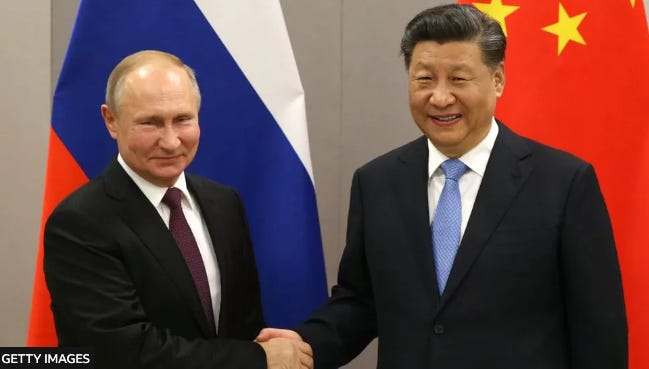
In today’s episode we interview Sarah Kirchberger, one of Germany’s and Europe’s leading experts on the Moscow-Beijing relationship, to tell us more.
(Sarah is the co-author of the recently published “Russia-China relations: emerging Alliance or eternal rivals?” and we make frequent reference to the book in the conversation below.)
Here is a summary of our discussion:
There is no treaty between the countries, nor is the relationship based on commonalities of values or trust as with NATO; instead, it is an arrangement of interests.
Russia and China, having fallen out in the 1960s, only really started to come back together in recent decades. Russia’s invasion of Georgia in 2008, it is argued, kickstarted the rapprochement as Moscow violated the (then) norm of not invading your neighbours.
Russia needs China as it is now less integrated into the world economy; China needs Russia for its arms and hydrocarbons.
India is in a position where it cannot break with Russia. If it did so, it would be to risk Moscow throwing its whole weight behind Beijing in an anti-Delhi pact.
China may be trying to distance itself from the quagmire of Russia’s involvement in Ukraine, but Xi is still keen. As someone recently said, "There is really only one fan of Russia left in China right now. Unfortunately, he's very powerful".
Western efforts to decouple Russia-China may have to wait until there is a change of leadership at the top of these nations.
You can also listen to the podcast on Apple, Amazon, or Spotify.
As always please do share, comment, and subscribe. We’ll be back soon with more What China Wants.
Many thanks for listening.
(In the meantime, if you would like more information about the Evenstar Institute and our research, then please email me sam.olsen@evenstarglobal.com)
***
Here is the transcript:
Sam Olsen: Hello and welcome back to What China Wants. As normal, we will start off with a little quote. "Putin's Russia and Xi's China can be seen as cyclists travelling in parallel on separate bikes, but on the same bumpy road of Via Anti-Americana." That was taken from a new book called "Russia-China Relations", which examines how and why Moscow and Beijing are now co-operating, something which obviously has come very much into like recently with the travails in Ukraine and the threat to Taiwan. To discuss this Stewart and I are joined today by one of the editors of that book, Sarah Kirchberger. Welcome, Sarah.
Sarah Kirchberger: Hi, Sam. Many thanks for the invitation to join you here.
SO: It is great to have you on. Now for those that do not know, Sarah is one of Germany's leading China experts. She is currently the head of Asia-Pacific Strategy and Security at the Institute for Security Policy at Kiel University. She is a Nonresident Senior Fellow at the Atlantic Council, and a Vice President of the German Maritime Institute. So quite busy these days, Sarah?
SK: Well yes, not least due to the war in Ukraine and everything it brings about, security specialists now have their hands full.
SO: Before we get started on the main meat of the of the conversation about Russia and China, would you say that the Ukraine War has actually changed the perception of security analysis and political analysis, especially regarding China in Germany?
SK: Yes, I would definitely say so. Some of our leading politicians have mentioned they felt that they were waking up in a different world. Security specialists, of course, they will say, in that case, you have been fast asleep during the years before. But yes, the general perception is that many people were taken by surprise. And this has, of course, led to an increased interest in security analysis, and a lot of activity on that front.
Unfortunately, Germany, the country where I am based - so I am not only German, I also have Finnish nationality - so I am connected to two different, you could say, 'security cultures'. Finland has a very different story, they have never been asleep. But in Germany, I can tell you, it is a very hard endeavour to try and get, in particular political decision makers, to pay attention to pressing security issues. Very often, the wishful thinking among parts of our political elites and the preconceived notions of how they want the world to be, tend to interfere with their ability to take in expert advice. I think the Russia situation, whether it is regarding Nord Stream, or whether it is regarding the Russia-China relationship, or whether it is Russia's intentions on Ukraine are all examples of that.
SO: Got it. Okay, well, to get things started, specifically around Russia-China, what is the score there? I mean, are Russia and China aligned? Are they allies? How do you actually define their current relationship? Maybe if you can add some historical comparisons to that, what do you think is the most relevant historical parallel? Would it be Germany and the Soviet Union post-World War One? Or is it America and the UK in World War Two? How do you define that relationship?
SK: Yes, thank you. That is an excellent question. It was actually the question that drove our work on this book, where we started from, because that was indeed difficult to say at the outset. What is this relationship really about? Is it just a partial relationship about particular interests where they converge, but in reality is there still the old enmity that we saw during the Cold War between the Soviet Union and China? Or is it something else, is it developing towards a treaty alliance even? So there was a broad spectrum of possibilities.
Actually, to clarify the situation and learn about the actual nature of this relationship? What we did was we conducted a research process over two years, convening a couple of expert workshops, where we brought together Russia experts, China experts, military experts, and also officials from NATO, and so on, to discuss the available empirical evidence of what is actually happening on the ground, where are China and Russia actually cooperating, and what is coming out of that cooperation. Because the problem with both governments is what they say publicly is not necessarily a good indicator of what is actually happening.
One can of course, look at the rhetoric level as well, how they themselves describe the bilateral relationship. So the latest description right before the outset of the war against Ukraine was a "friendship without boundaries" or a "limitless friendship". That was what Putin and Xi proclaimed in early February 2022. Leading up to that we had a couple of other statements by Putin and by Xi, and they seem to flirt with the notion that anything was possible that even a formal alliance would be possible.
However, looking at what is actually happening, we came to a couple of interesting, you could say diagnosis. So, one diagnosis is that the economic relationship between both countries has characteristics of you could say a synergy, because Russia is a country that, compared with China, economically speaking, relatively weak, so a relatively small national economy, that is mainly able to export two types of goods: arms technologies and hydrocarbons. Those happen to be particular products that China desperately needs and wants. So China is the largest market probably for both of these types of commodities that Russia is able to sell. So there was a natural synergy there. And also lack of capital for investments and all kinds of purposes in Russia, is something where China with its ability, at least before the pandemic and before the growth started to go down, able to promise a lot of investments and so on. So, there were natural synergies developing there.
But what interested me in particular was the arms trade. Because when you look at international relations, from this perspective, military technological cooperation, then you can see that actual alliance relationships are very often underpinned by great projects in that field. Because military-industrial relations is really a field that tells you what is the actual status of trust between two countries. It is very hard to sell advanced arms to a country that you consider not just a competitor, but maybe a possible attacker or aggressor at some point. There has been a lot of discussion of the past history of enmity between Russia and China, and the possibility that they could see each other still as a military threat.
SO: Well they did have that that skirmish in 1969, where I think a few hundred people died. That is obviously within close memory, what you are saying is that that has not really come between them, that recent history of military clashes, in terms of the exchange of military equipment?
SK: It did come between them for a long time. So actually, until the demise of the Soviet Union, there was very little going on in terms of good relations between Russia and China. And only after the Soviet Union came to its end, which coincided almost with the 1989 Tiananmen massacre when China's brief honeymoon in terms of military-industrial relations with the Western countries, including the United States, also came to an end. So China suddenly found itself in a situation where it was no longer able to import advanced arms from any of the partners of the United States, which it had relied on for about 10 years, up until that point. And suddenly, the Soviet Union ended and left several states, as you could say, years of the Soviet Union's military-industrial complex.
Of those, the most significant ones were Ukraine and Russia. China started to forge the military-industrial import relationship with both countries, with Ukraine and Russia, and started to import whatever they were willing at the time to export to China. Russia still was very wary of China at the time, and not willing to give China its most advanced arms. So that was a state of being that lasted, I would say, until roughly 2005 or 2008. So during that period, from 1992 to 2008, actually, Ukraine was more open to exporting advanced arms to China than Russia, Russia was still very cautious. And there were lots of problems where China reverse-engineered the arms that it had been given by Russia and industry experts saying, "they cannot be trusted, they are not good partners" and so on. Then something changed. And that was, I think, Russia's decision to invade Georgia, which so blatantly violate this norm.
SO: In 2008.
SK: Yes, in 2008. So this was the first moment I think, where Russia positioned itself towards this road of becoming very, anti-American, anti-Western and violating these norms of not invading your neighbouring countries. This was the moment when I think China as well, began to warm more towards Russia maybe. That was the start, and then they negotiated apparently, their remaining differences over the common border. There had been border disagreements, and in that year, they came to an agreement. This enabled both countries to withdraw large amounts of troops from their common border. This is one of the most important indicators of distrust or trust, if you think you might be attacked by your neighbour, you will have to fortify your border, right? If you feel that there is no threat coming from your neighbour, you can use those troops elsewhere. And this is what we saw, we saw that Russia and China stopped fortifying. Even the largest military exercise that Russia or the Soviet Union used to conduct was the Vostok exercise that was usually done with a view to China as a potential adversary. This is now an exercise that China regularly joins, so where China joins Russia, and no longer is the power that is exercised against. So this is this is one of the important indicators.
But then in 2014, the occupation of Crimea, that was really the watershed moment that changed this relationship, because from that moment on Russia had a little alternative than turning to China, because of all the sanctions, of course, that were levelled on Russia, and also because Russia had shown itself to be the aggressor against neighbouring country, again, in this case, Ukraine. China, for some reason, probably had not the same qualms about that, and also maybe with a view to Taiwan, maybe with a view to saying, "Okay, we also have territorial claims that we want to maybe at one point follow through on and if we support Russia now, we can perhaps count on Russia's support later". So that may have been one of the reasons for China to warm to Russia.
But in any case, Xi Jinping and Putin both have been in power since about 2012. So that was also maybe one of the factors that drove the closeness between Russia and China, these two leaders being sort of on the same page, in their opposition to the West, the political West. And so, yes, the invasion of Ukraine, and 2014, and the occupation of Crimea, they really brought about a massive change. And from then on, we can see Putin and Xi both taking charge and ordering, you could say, the rest of the country to fall in line and start supporting this partnership with the other country.
Stewart Paterson: So Sarah, you seem to be painting a picture of really quite a deep level of trust developing between the two of them. Do you see the dynamics of the bilateral relationship being a basis for a broader coalition of authoritarian states? We are hearing more and more about Iranian weaponry being used in Ukraine. And so do you see this sort of bonding between China and Russia as forming the sort of kernel of a broader alliance, with bigger implications than just the bilateral relationship?
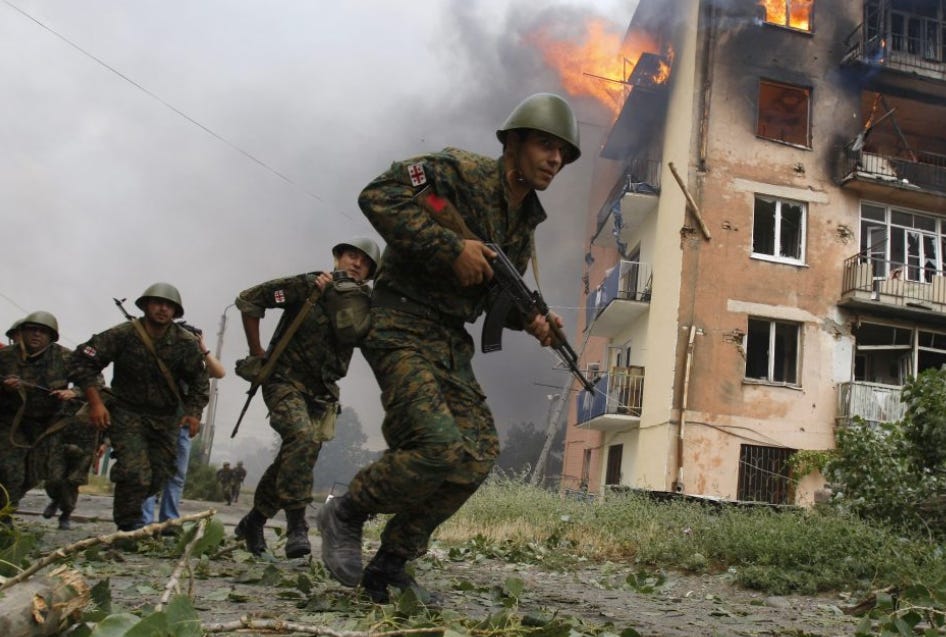
SK: Well, Stewart, I think this question can be tied back to something that Sam asked about, the nature of this relationship. So far, we have seen empirical evidence of coordinated action and reduced perceptions of mutual threat. But what does this mean? Is this really trust? Is this really something akin to what, for instance, the United States and Britain experienced during past wars? Is this because it's a Treaty Alliance? Is this something that could be enlarged to incorporate other countries as well, like NATO? So I would say no, it's not something that resembles a Treaty Alliance based on actual trust and friendship, or commonality of values like, for instance, NATO, I do not think that would be a good comparison. It is also questionable how far authoritarian countries of this type, Russia and People's Republic of China, are even capable of trusting another power in that sense. So authoritarian countries of this type, in particular post-Communist countries, Leninist countries, trust is not really a category of political life there at all. Not even within the country. Would you say that there are political figures in China that really trust some of their colleagues? Maybe there are a couple, but I would say trust is generally absent from the political life in both of these countries. So I would not expect actually, China and Russia to develop in that sense, the trust that is based on respect for common values.
But they do have interests in common. And these types of countries, they really go about pursuing their interests in a very hard-nosed way. So I don't see a Treaty Alliance coming because a treaty in that sense is also an obligation to follow through whatever you promised to do in a treaty. It is also something that relies on the notion that treaties are inviolable, and have to be adhered to. And I do not see that in either Russia or China, that law is regarded as being on that level of inviolability. I don't see that, I think neither China nor Russia will respect any treaty that they signed, if it is not in their interest to respect the treaty. So we have seen it multiple times, violations of that sort. But what we see is we see a relationship that has maybe something in common with authoritarian countries cooperating sometimes only for short term common interests. The most notorious example would, of course, be the Hitler-Stalin pact in well, 1939 that basically started World War Two, where two countries that most certainly did not trust each other, however, agreed to common goals, leaving each other alone and giving each other licence to do in their own backyard, whatever they deem necessary. We know that this was a very, very short-lasting agreement, and in the end, Germany turned on Russia. But nevertheless, it created havoc, it started a war that cost the lives of tens of millions of people. And so in that sense, I think asking whether it is going to be like NATO is maybe the wrong question to ask. The right question to ask is perhaps rather, how far could even short-term co-operation go? And how dangerous could the ensuing situations be?
SP: So maybe then we should just focus in a little bit on where the commonality of interests are, and what the limits of those interests, the commonality of those interests are, where they start to diverge? Which would then lead us on to perhaps a discussion about what the West could do or ought to do, if anything, to try and highlight the divergence of interests?
SK: Yes, absolutely. I agree. It is important to note that there are differences between both countries, in terms of for instance, their exposure to trade. Russia is a country that has now basically become completely dependent on China as an economic partner because Russia is not as integrated into world trade. It used to be a major supplier of hydrocarbons, but by its own actions, it has now become harder and harder for other countries to import Russian oil and gas, and so on. So Russia is is becoming more and more restricted in its choice of partners there. Whereas China is a country that is hugely reliant on economic exchanges with the outside world, even though China has been trying to become less dependent and strengthening its own autarky through this dual circulation strategy, and so on. But still, for China, it is hard to see how a country that is reliant, for instance, on food imports, and energy imports, and technology imports could completely cut itself off from these dependencies, that is hard to see right now. So, there are levers that the rest of the world can use to show both of these countries that the way forward, it is maybe a better idea to stop the threatening behaviour, to stop the aggressions against neighbouring countries and start orienting themselves more towards what most of the rest of the world, consider civilised behaviour.
SO: Well, actually, on that point, you say "most of the rest of the world". One of the things that I saw in your book is something that we at the Evenstar Institute have been looking at too, which is the commonality of voting patterns from the rest of the world in support of either Russian or Chinese or both motions, at the United Nations and other inter-governmental bodies. And what it does look like is that the world has split into three. You have got the Western bloc and the Western alliance, which includes Japan and South Korea, of course. And you have got Russia, China and Iran and Venezuela and maybe Bolivia and a few others like that. And then you have got a huge number of countries which are non-aligned. I suppose, how does this alignment between Russia and China - this alliance or whatever word we want to use - how is that attractive or not attractive to the third of the world which is currently non-aligned between these blocs?
SK: Thank you, Sam. Yes, that is indeed a big question because some parts of the world such as Africa, they have a huge amount of countries and huge amount of votes in the United Nations, and are not necessarily in either of these camps. It is not maybe in their interests to be in either of these camps, strictly speaking, it is true. So that chapter, you are referring to by Olaf Wientzek, who was working in Geneva, and is one of the people looking regularly at voting patterns, shows that there has been difficulties getting some of the countries for instance, in Sub-Saharan Africa and other parts of the world on board. Also India, one of the major examples, a country that is hugely reliant on Russia as a supplier of not just hydrocarbons, but also arms technologies, because the Indian armed forces have been built up for decades relying on Russian arms technology. So the dependencies that come from that in terms of needing you know, supplies of spares and maintenance services, and so on, they are huge. You cannot just from one day to the other decide to switch your supplier. If you have your whole fleet of naval vessels or your tanks sourced from one country, then you are basically stuck with that for quite a while.
India is definitely in that situation where they cannot really afford to break relations with Russia, or offend Russia really, really badly. At the same time, India has a big problem with China, and they had these border clashes recently, or are still having them actually. India feels very much under threat from China, also from China's intimate relationship with Pakistan. So, from India's point of view, balancing China also requires keeping that Russia relationship alive in order to keep Russia from throwing its weight behind China against India. That would be a horror scenario, from India's point of view. So every country that deals with both of these powers has such types of considerations going on. So it is a little bit hard to demand from a country that is not in similar position to ask a country for instance, like India, to throw everything overboard and neglect its own national interests, its own security interests and throw its vote in with a camp, such as the Western camp in the Ukraine war. I do understand the Indian considerations.
However, that does not mean if you talk to some of these diplomats from some of these countries, Vietnam would be another country with strong historical ties to Russia. I recently visited Vietnam, and it was striking to hear diplomats and experts from Vietnam talk about that Ukraine war situation, because Vietnam is actually a country that has fought wars, with every member of the UN Security Council except Russia. Russia has always been a good friend to Vietnam, and that means something to a country like Vietnam. They have fought the United States, China, France and Britain in their colonial wars. And then the latest was the war with China when China invaded Vietnam in the late 1970s. So for them, Russia has always been the stable partner compared with everyone else. But even the Vietnamese counterparts I talked with indicated that while they have to publicly, sort of not throw Russia under the bus at least, privately they were very critical of Russia's war against Ukraine, very critical. So what I expect to see is that a lot of the countries that did not vote with the Western camp to condemn Russia on Ukraine, however, privately, probably still, many of them disagree with the war and maybe privately communicate to Russia their concerns. We have seen evidence of that even publicly when Modi said something to that effect at the SCO summit in Samerkand.
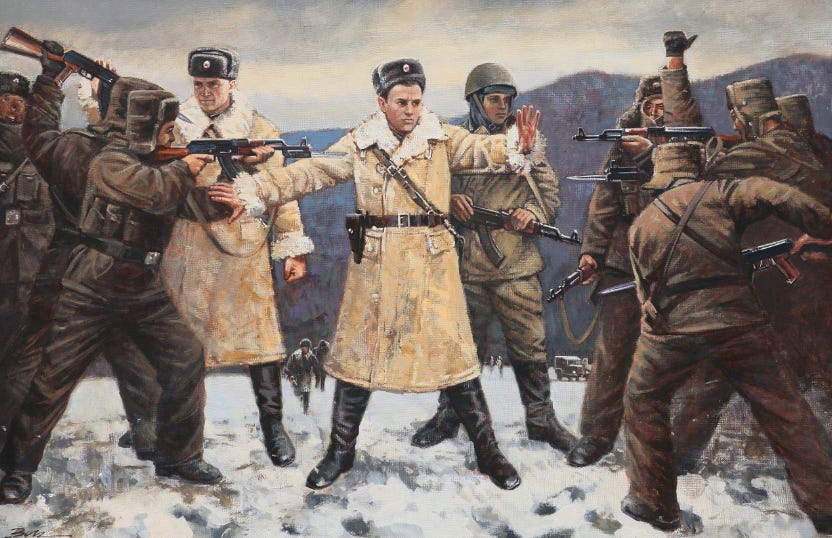
SP: Sarah, so that is really interesting, what you are saying about India and Vietnam. But one of the recurring themes seems to be that a lot of Russia's influence into the global south and the sort of non-aligned movement broadly, stems from their armaments exports and the dependency that countries have on Russian military technology. To what extent do you think the reputation of the quality of that armaments industry has been damaged by the progress of the Ukrainian war as we are seeing it play out?
SK: Well, I would expect that the reputation of Russia as not just a military superpower, but also a prime supplier of arms has really, really suffered. It has taken a hit without a doubt. So I have personally heard such statements, for instance, from Indian diplomats who said that "yes, we know we have to sort of get rid of this equipment and get something better because of our own interest in having good arms". It is just not something you can do very quickly or very easily. But I think many other countries are in the same camp, they will say "okay, these systems are not nearly as good as we thought, and Russia is not nearly as good a partner as we thought". I think a lot of the countries in the global south, they may have also been tired of being lectured about democracy and human rights. This is also something where Russia and China both held an attraction to some of the countries by signalling that "we are not going to criticise you for authoritarian behaviour, we are not going to interfere with your "internal affairs" as it is called. However, now seeing the violent expression of such authoritarian behaviour and the suffering it brings to neighbouring countries may also lead to reconsiderations of this rejection of human rights and so-called "Western values". So that is what I expect to see, a really big damage to Russia's reputation.
I think China actually also is now trying to shield itself a little bit from the fallout of this disastrous war against Ukraine, you can see that a lot of Chinese are uneasy about this alignment with Russia. So I have heard interesting statements from Chinese interlocutors who said "that there is really only one fan of Russia left in China right now. Unfortunately, he's very powerful". That is what one of them said. I am not sure, that may be an exaggeration of course, but we know that the Vice Premier in charge of Russia Affairs has been fired from that job and transferred to a totally different occupation in the broadcasting system. He was considered one of the people who was behind this, Russia-China partnership, and Xi Jinping does not seem to have been very satisfied with the Russia advice he got, at some point during the war. So, when the war began to turn bad for Russia, in the summer, for instance, or when the counter-offensive started
SO: Day four you mean!
SK: Day four already was probably a shock. I mean, when the when the Ukrainians really began to go onto the offensive, and really, it looks like Russia may now actually be losing the war, something that many people did not expect to happen. So this is a point where Xi Jinping needs to consider the damage to his own reputation, to his own judgement, in terms of throwing his lot in with a loser, basically, looking bad from this association.
SO: On that note, and just to finish things off, it looks like there are not that many people potentially in China, who are fans of this relationship, this alliance, whatever. Do you think because of the war in Ukraine, and the way that has gone for Russia, is there scope for the West to interfere in this Russia-China relationship and to perhaps peel one side off from the other? Or do you think they have made their bed and they are going to lie in them whatever happens?
SK: Well, I think as long as Xi Jinping and Putin both remain in power, it is going to be very hard to pry one way from the other because of this close alignment of their personal worldviews and personal interests. And it is not going to be easy. However, seeing the Chinese hesitation in throwing its lot fully behind Russia right now, because no doubt of the failures of the Russian strategy, this is maybe an opportunity to signal to China, there is a way forward for you that is different than what Putin has chosen for his country. So do not go down the same road. So one could use the warning of these, strategic miscalculations that Putin conducted to put out incentives towards Xi Jinping, and try and get China back on track being a good citizen of the world. I think this is actually what the German Chancellor Olaf Scholtz has been trying to do in his talks with Chinese counterparts, trying to tell them "do not think that you would be treated differently than Putin if you were going after Taiwan for instance". So this is one of the things that Western countries can right now do, signalling to China the dangers of taking violence to a level, like Putin. But I think for a true, you know, prying away both countries from each other, we need to wait really for a situation where there is different leadership in either one or both of these countries, when other constituencies within these countries come to power, and maybe begin to seriously reconsider their interests and national interests, long-term, and coexisting with the rest of the world. I do not see that happening, frankly, as long as we have the current two leaders in power.
SO: Well, on that depressing note, thank you so much for your time, Sarah. The book, "Russia-China relations: emerging Alliance or eternal rivals?" is now out. I thoroughly recommend it to anyone that is interested in in what Russia and China are doing with each other. Sarah, thank you so much, and Stewart and I will be back next week for more What China Wants.
SK: Thank you so much, Sam and Stewart for this fantastic opportunity. Thank you.
SP: Thank you, Sarah.





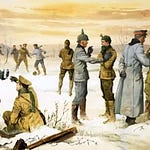
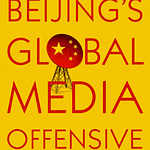
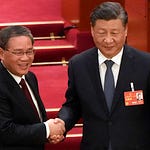
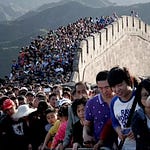
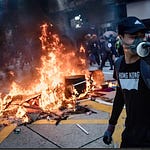


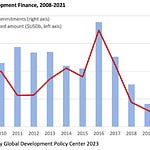
Share this post